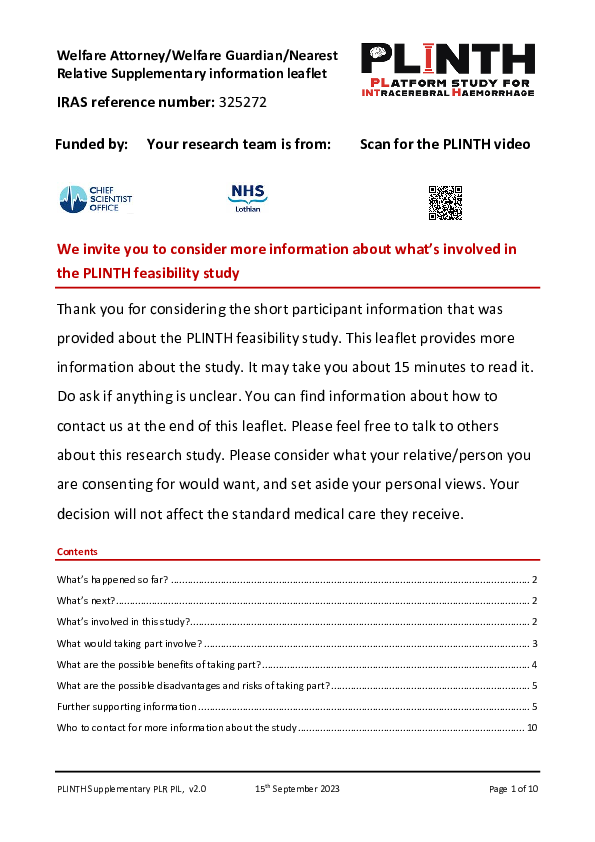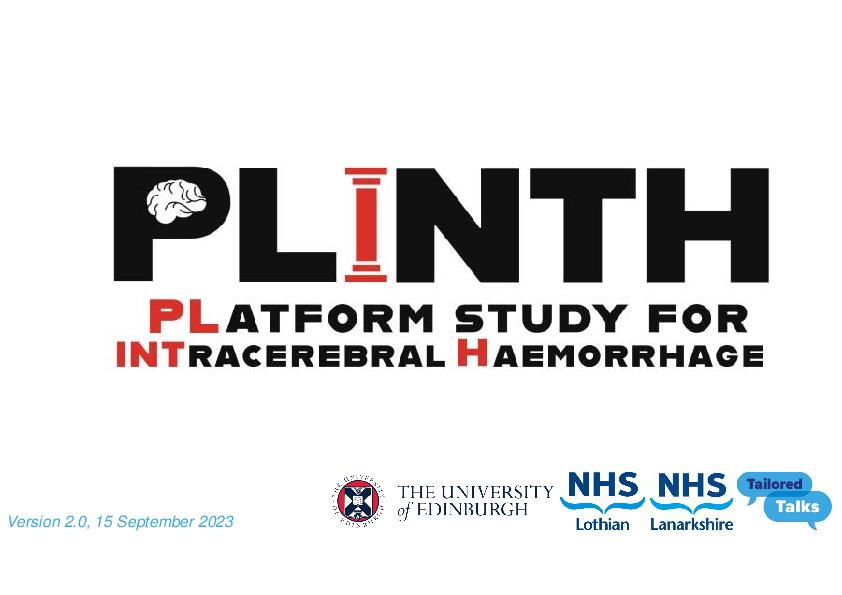PLINTH
PLatform study for INTracerebral Haemorrhage (PLINTH)
Short video describing the ongoing PLINTH feasibility study:
- Video: PLINTH feasibility study
- Patient information on the PLINTH feasibility study.
Background
Clinical trials have not found a treatment that works specifically for stroke caused by bleeding in the brain, known as intracerebral haemorrhage (ICH for short). Most clinical trials have studied one treatment at a time and included only 1 in 10 people with ICH. That’s why each clinical trial recruited only 77 participants on average. A PLatform study for INTracerebral Haemorrhage (PLINTH) will change this by investigating several treatments and giving everyone with ICH an opportunity to take part. We received funding from the Chief Scientist's Office for a three year project.
Further information can be found at www.cso.scot.gov.uk and at Clinical Trials.gov.
We intend PLINTH to be large, inclusive, efficient and assess several treatments for ICH. First, we must do a feasibility study to work out whether PLINTH can succeed. We will find people recently diagnosed with ICH in Lothian and Lanarkshire and invite them to take part in our feasibility study. We will provide them with personalised information using Tailored Talks. We will find out if PLINTH is acceptable to people with ICH, carers, and doctors. We will use data that are collected routinely to follow participants’ progress. Characteristics and outcomes of participants will help design PLINTH.
We asked ICH survivors about PLINTH: 92% strongly agreed that working out how to do a platform study to find treatments for ICH is a priority. An ICH survivor is in our team. We will produce easy access reports and share them with people with ICH, carers, healthcare professionals, and the public in their preferred format (printed, email, social media, and on our website www.RUSH.ed.ac.uk).
Project progress
We have received regulatory approval to start the study from:
- Our Sponsor, ACCORD (protocol number AC23101)
- Scotland A Research Ethics Committee (reference 23/SS/0087)
- NHS Lothian Research and Development Department













